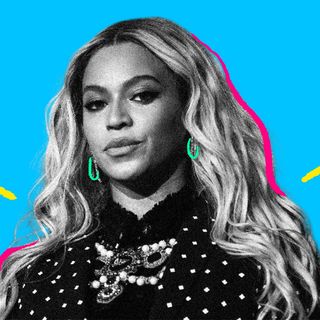
Calls to Boycott ‘Laal Singh Chaddha’ Show How Bigotry Underlies Anti‑Bollywood Sentiments
Aamir Khan’s Forrest Gump remake has run into trouble ahead of its release, because of his comments — as a Muslim — on rising intolerance from years ago.

Ahead of actor Aamir Khan’s return to the theatres after almost four years, #BoycottLaalSinghChaddha and #BoycottBollywood are trending on Twitter. The hashtags, aimed at the Khan-starrer remake of 1994 film Forrest Gump, claim that the Bollywood superstar should suffer in the box office because of “anti-India” comments that the actor had made years ago. Some also pointed out how Khan had in the past made fun of Hindu deities and rituals — most notably in his 2014 film PK. When PTI asked the actor to comment on the incident at a group interview, Khan responded by replying that he really loved India. “It is rather unfortunate if some people feel that way. I want to assure everyone that it’s not the case so please don’t boycott my films, please watch my films,” he added.
This is not the first time that trolls have called for the boycott or banning of a movie, citing hurt sentiments. Films dealing with “tricky” themes — such as, but not limited to, politics, history, caste, religion, extra-marital affairs, and sexuality — have often run into trouble with factions of society opposed to the depiction or public discussion of these themes on the screen. In the last few years, opposition to such movies has also become more violent, with protestors vandalizing sets, manhandling directors, and announcing bounties on actors’ noses. Now, however, films are also being targeted simply for the identities of the actors they feature, and with the advent of social media, the trolling has also become much more strategic and voluminous.
What sets the present moment apart is how it coalesces with larger resentments against elitism in Bollywood coupled with the aftermath of actor Sushant Singh Rajput’s death by suicide — an incident that many attribute to the gatekeeping within Bollywood itself. The mainstreaming of this ire has led to a situation where, within the ambit of a vague hashtag like #BoycottBollywood, a Muslim actor is forced to pledge his patriotism while requesting audiences to watch his film.
Related on The Swaddle:
How Bollywood Is Losing Its Credibility
In early 2020, for instance, there was immense opposition and trolling against Deepika Padukone’s Chhapaak, a story of an acid attack survivor, because she decided to turn up at a protest in the Jawaharlal Nehru University following a night of vandalism by right-wing organization Akhil Bharatiya Vidyarthi Parishad. Similarly, later that year, when Amazon Prime Video was preparing for the launch of the second season of their web series Mirzapur, some trolls called for a boycott of the show as it starred Ali Fazal, an actor who had spoken up prominently against the Citizenship Amendment Act and had voiced his support to protests against it. The current attack against Laal Singh Chaddha are of the same nature, targeting the film starring Aamir Khan because of a statement he had made seven years ago.
In 2015, while speaking at the Ramnath Goenka Journalism Awards, Khan had commented that there was “this sense of growing disquiet, there is growing despondency” in the country. He added, speaking of his then wife Kiran Rao, that she asked whether they should move out of the country. “That’s a disastrous and big statement for Kiran to make. She fears for her child (son Azad). She fears about what the atmosphere around us will be. She feels scared to open the newspapers every day,” he said. That year, two months before the award ceremony where the actor made the statement, a mob had murdered Akhlaq Khan of Dadri over mere suspicions of storing beef in his refrigerator.
At the time of his statement, Aamir Khan was the brand ambassador of the Ministry of Tourism, a position from which he was dropped almost immediately. Additionally, he was also dropped from his endorsement deal with e-commerce brand SnapDeal. There was also public uproar over his statement, with many accusing he had maligned India’s image by making such a grave statement at a public platform.
A section of trolls targeted the film also because of the presence of Aamir Khan’s co-star, Kareena Kapoor Khan. Notably, she has dealt with similar controversies earlier. In 2018, in the aftermath of the rape and murder inside a temple of an 8-year-old Muslim girl in Kathua, Jammu and Kashmir, the actor along with her Veerey Di Wedding co-stars Sonam Kapoor and Swara Bhasker spoke out against the incident. Soon, there was immense vilification of the actors on social media, and there were vehement calls for boycotting their movie.
Recent calls for boycotting Bollywood movies may suggest that there is a growing anti-Bollywood sentiment in the nation. Social media hashtags, on first glance, seem to imply a vague discontent with Bollywood itself. But at the same time, movies like Kashmir Files — a movie not very strong in its craft and that outright villainizes a religious community — have performed well and were aggressively promoted online. Looking at some of the movies that have been subject to a boycott call in recent times suggests that many of these films are targeted not because of creative or artistic faults but because of the intolerance of audiences towards the views that their actors and directors hold.
A previous version of this article incorrectly stated that the rape and murder of an 8-year-old Muslim girl took place in Kashmir.
Amlan Sarkar is a staff writer at TheSwaddle. He writes about the intersection between pop culture and politics. You can reach him on Instagram @amlansarkr.
Related


Arivu Claiming His Credit for ‘Enjoy Enjaami’ Resists the Mainstream’s Erasure of Caste From Its Story
